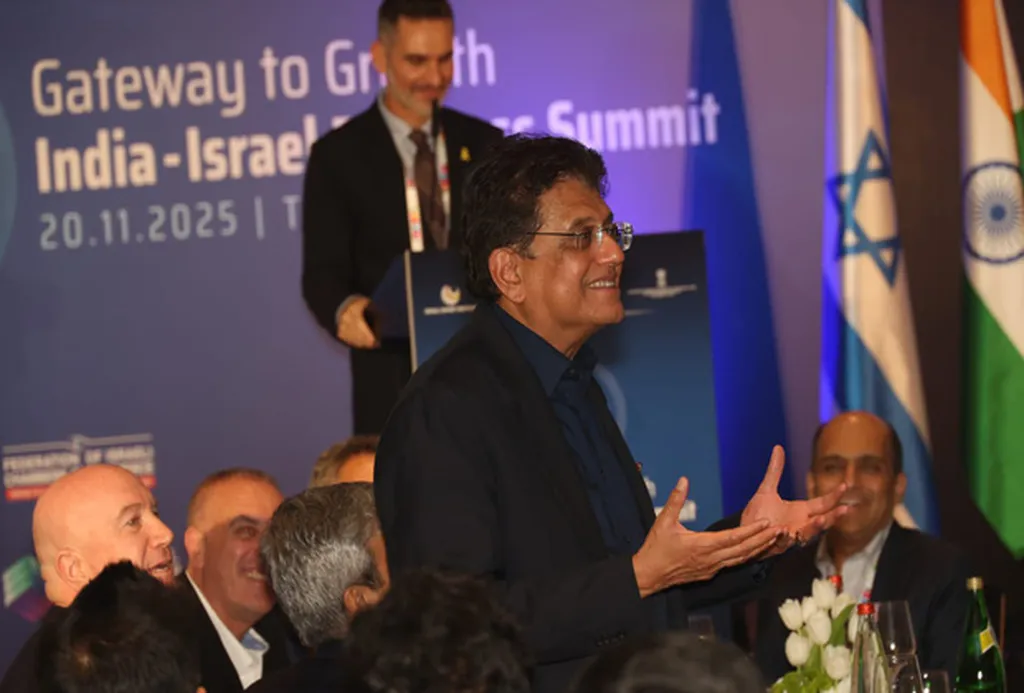Union Commerce and Industry Minister Piyush Goyal’s recent three-day visit to Israel has underscored the growing significance of cooperation-driven growth, particularly in agriculture, technology, and the cooperative sector. The visit, which advanced bilateral strategic engagements, opened new avenues for Indian cooperatives, including dairy giants like Amul, to collaborate with Israeli innovators in agritech, water management, and community-based farming models.
A pivotal moment of the tour was Goyal’s meeting with Israeli Agriculture and Food Security Minister Avi Dichter. Dichter provided a comprehensive briefing on Israel’s long-term food-security roadmap, advanced seed-improvement technologies, and the country’s globally recognised leadership in water-reuse systems for agriculture. These areas hold particular relevance for India’s cooperative sector, which plays a crucial role in rural development and food-chain resilience.
India’s dairy cooperatives, notably the Gujarat Cooperative Milk Marketing Federation (GCMMF), which markets Amul, are already exploring collaborations with Israel to expand their presence in West Asia. Amul has expressed keen interest in tapping into Israel’s kosher-certified dairy market, and Goyal’s engagements have further strengthened this evolving cooperation. With India being the world’s largest milk producer and cooperatives contributing significantly to this achievement, the potential for joint ventures, technology exchange, and market expansion remains vast.
During his visit to the Peres Center for Peace and Innovation, Goyal gained insights into Israel’s world-class innovation ecosystem, which includes water-efficient drip-irrigation systems, agricultural sensors, and next-generation technologies with deep applicability for India’s cooperative-driven agriculture. He described the center as a testament to Israel’s strength in transforming grassroots challenges into scalable solutions, an approach that aligns with India’s cooperative philosophy of community-based problem-solving.
A visit to Kibbutz Ramat Rachel further highlighted the synergies between the two nations. The kibbutz model, rooted in cooperative living and shared economic activity, mirrors India’s own cooperative traditions, where community ownership and democratic decision-making remain central. Goyal observed the kibbutz’s sustainable agricultural practices and participatory governance, offering learnings that may inspire India’s ongoing efforts to modernise cooperative institutions.
On the trade front, Goyal held discussions with Israel’s Minister of Economy Nir Barkat and Minister of Finance Bezalel Smotrich to boost investment flows, fintech collaboration, and regulatory cooperation. The India–Israel Business Forum saw strong private-sector enthusiasm in areas such as agritech, AI, precision engineering, and advanced manufacturing, domains where cooperatives too stand to gain through technology infusion and new global linkages.
A major highlight of the visit was the signing of the Terms of Reference for the India–Israel Free Trade Agreement. Once concluded, the FTA is expected to unlock new opportunities for cooperative exports, dairy products, processed foods, and farm technologies. Amul and other cooperative brands could benefit from reduced non-tariff barriers and smoother certification processes, especially in high-value markets such as Israel.
Goyal also interacted with leading Israeli companies like Netafim, IDE Technologies, and Check Point, exploring partnerships in precision irrigation, water management, and cybersecurity. These areas are crucial for strengthening India’s cooperative infrastructure, particularly in rural credit, agriculture, and supply-chain management.
As the visit concluded, it became clear that the India–Israel partnership is entering a new phase, one in which cooperatives, technology, and innovation will play a defining role. By linking Israel’s cutting-edge strengths with India’s vast cooperative network, both nations are crafting a future where collaboration unlocks new growth for communities, industries, and global markets alike.

